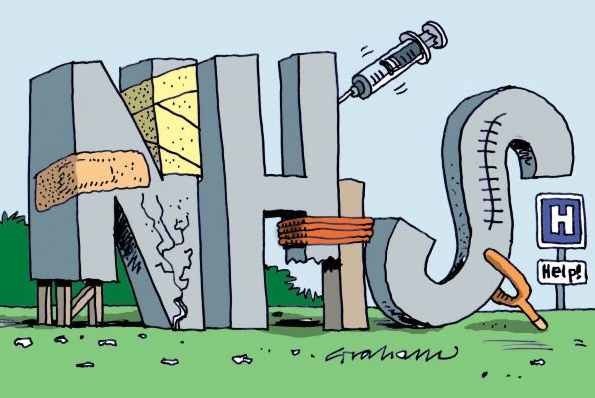Anecdotes and Data
Social media is part of our daily life. Platforms like LinkedIn allow us to share experiences and opinions, and receive feedback. But Healthcare usually gets a bad press in Social Media, with many people posting negative experiences. Some stories are tragic, others clearly made up - like the one on X where the Ambulance service apparently downgraded a response from Category 1 to to ‘routine’ after a man had been successfully resuscitated by his partner from a cardiac arrest. Unbelievable, literally.
Negative stories about healthcare often highlight real deficiencies in the service, but they do not describe the NHS. These anecdotes can have significant and far-reaching consequences for staff and patients. We need to consider how we can share stories more responsibly.
Mental Health and Wellbeing
The wellbeing and mental health of NHS staff is already compromised. For healthcare professionals, critical comments about their work or that of their colleagues are demoralising and stressful. Constant exposure to negativity causes anxiety, depression, and leads to burnout. The quality of care they are able to provide is further compromised.
I have consistently argued that NHS staff need access to Coaching as a support tool. Coaching is of proven value for all staff but especially needed by those experiencing stress or burnout, or considering their future in Healthcare. They should be accessing Coaching rather than enduring negativity.
Motivation and Commitment
NHS staff continue to work above and beyond their contracted hours or pay to deliver their service to the best of their ability. Many do so whilst feeling their best is no longer good enough.
However, constant negativity erodes motivation and reduces their ability to commit to the service as they once did. It is hard to give your best when facing constant criticism, especially if it does not describe the service you are providing.
Some healthcare workers will begin to question their abilities and the value of their work. Along with reduced productivity this can also lead to higher staff turnover and recruitment difficulties.
Patient Trust
At the same time, patients reading these posts experience increased anxiety and fear about their interactions with the NHS. Trust is being eroded by this barrage of negativity.
Critical comment, especially about specific staff or facilities, reduces patient confidence in healthcare professionals and services.
Effective communication is weakened and may compromise their care if they become reluctant to seek medical attention. They may also fail to follow medical advice, to the detriment of their health.
How do we share experiences responsibly?
It is undoubtedly true that not all healthcare experiences are positive. However, we must, for our own sakes, be able to share these experiences without demoralising the workforce or ourselves.
Use constructive feedback: Instead of purely negative comments, provide specific, actionable feedback that can help improve services.
Highlight and share positive experiences: Many of us have positive experiences about our care and sharing them provides a more accurate and balanced account of health services.
My own experience of Coronary Artery surgery in 2017 was that the Medical and Nursing care was exemplary, and the support staff were wonderful. Despite obvious staff shortages, the service was sustained because many people were prepared to work extra shifts and stay on after they should have finished.
Official channels: Official complaint procedures and feedback mechanisms are more likely to produce change than a LinkedIn post.
Protect staff privacy: Talking negatively in posts about named staff members may result in unjustified and targeted harassment.
Enhance our digital literacy: We need to educate ourselves about responsible social media use, especially the potentially negative impact of what we write.
Conclusion
Social media can, by sharing experiences, lead to improvements in healthcare services. It is however crucial for all of us to consider the impact of negative comments on NHS staff and patients.
Responsible sharing and constructive feedback creates a more accurate and balanced online environment that supports everyone, staff or patients, who are involved in healthcare.
Mutual respect and understanding between healthcare providers and the public is an essential goal if we want to maintain a strong, effective NHS that can continue to provide quality care.
